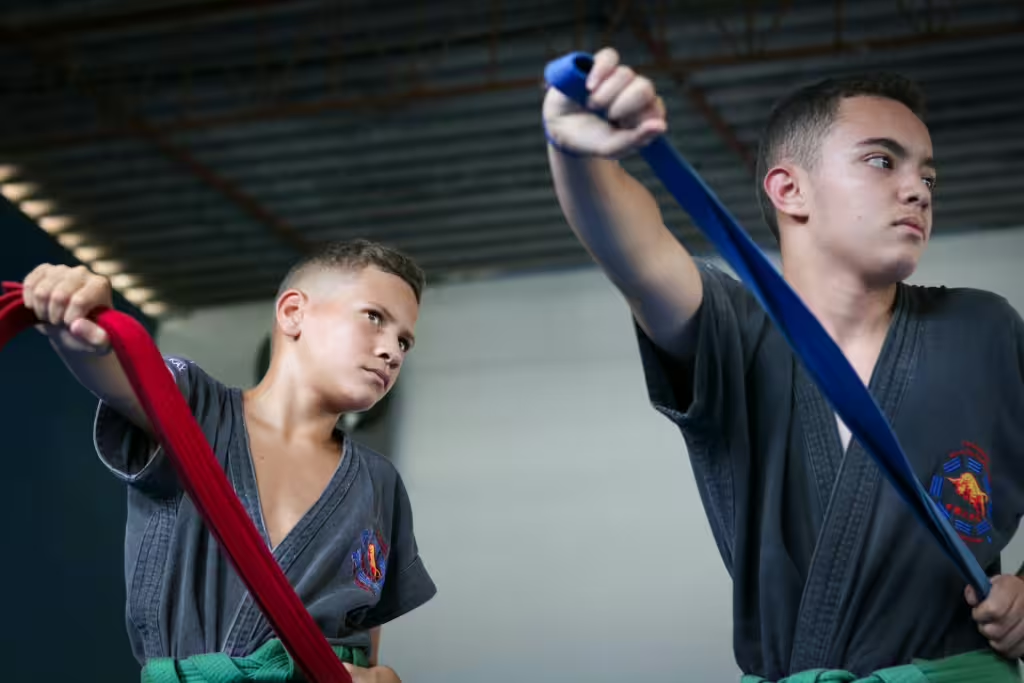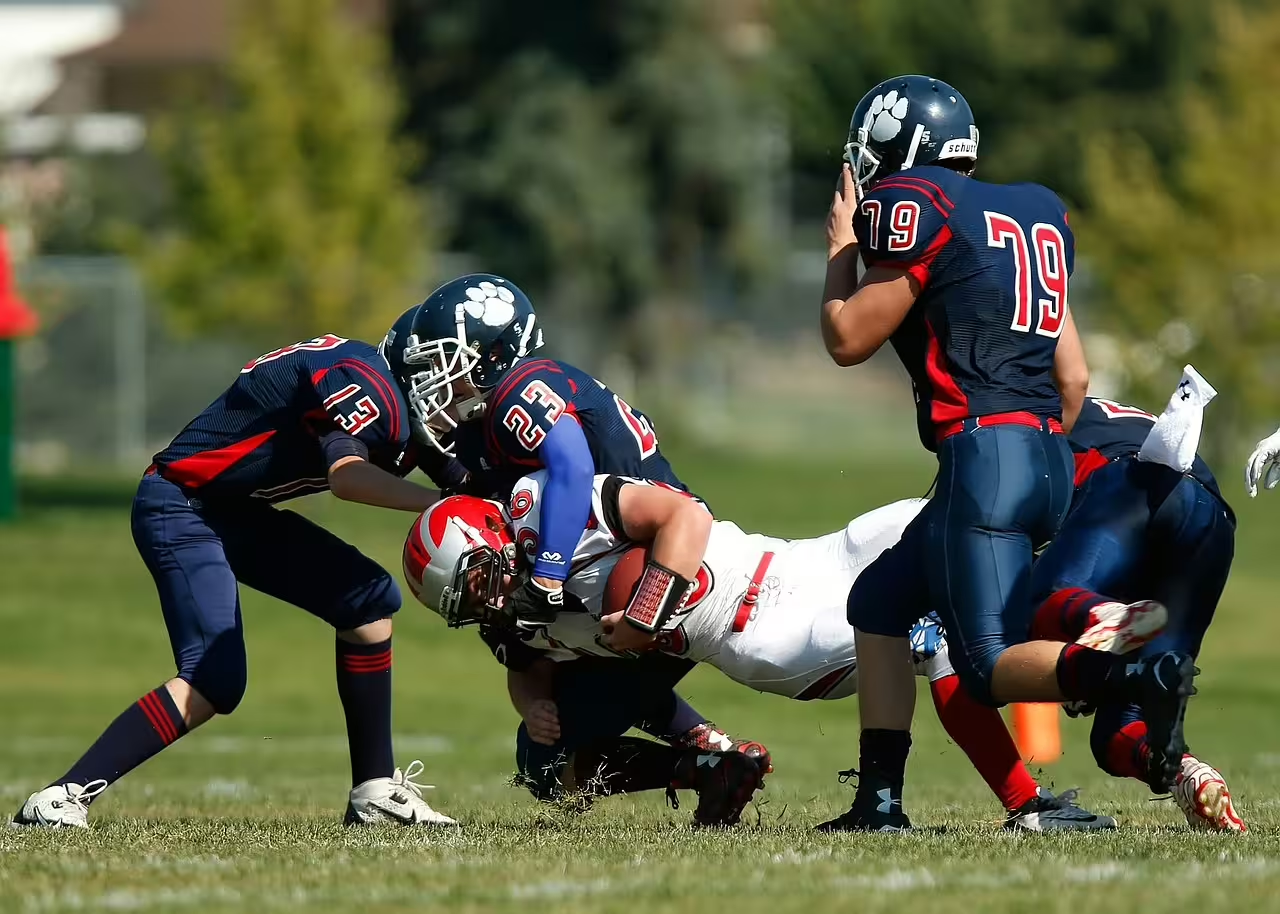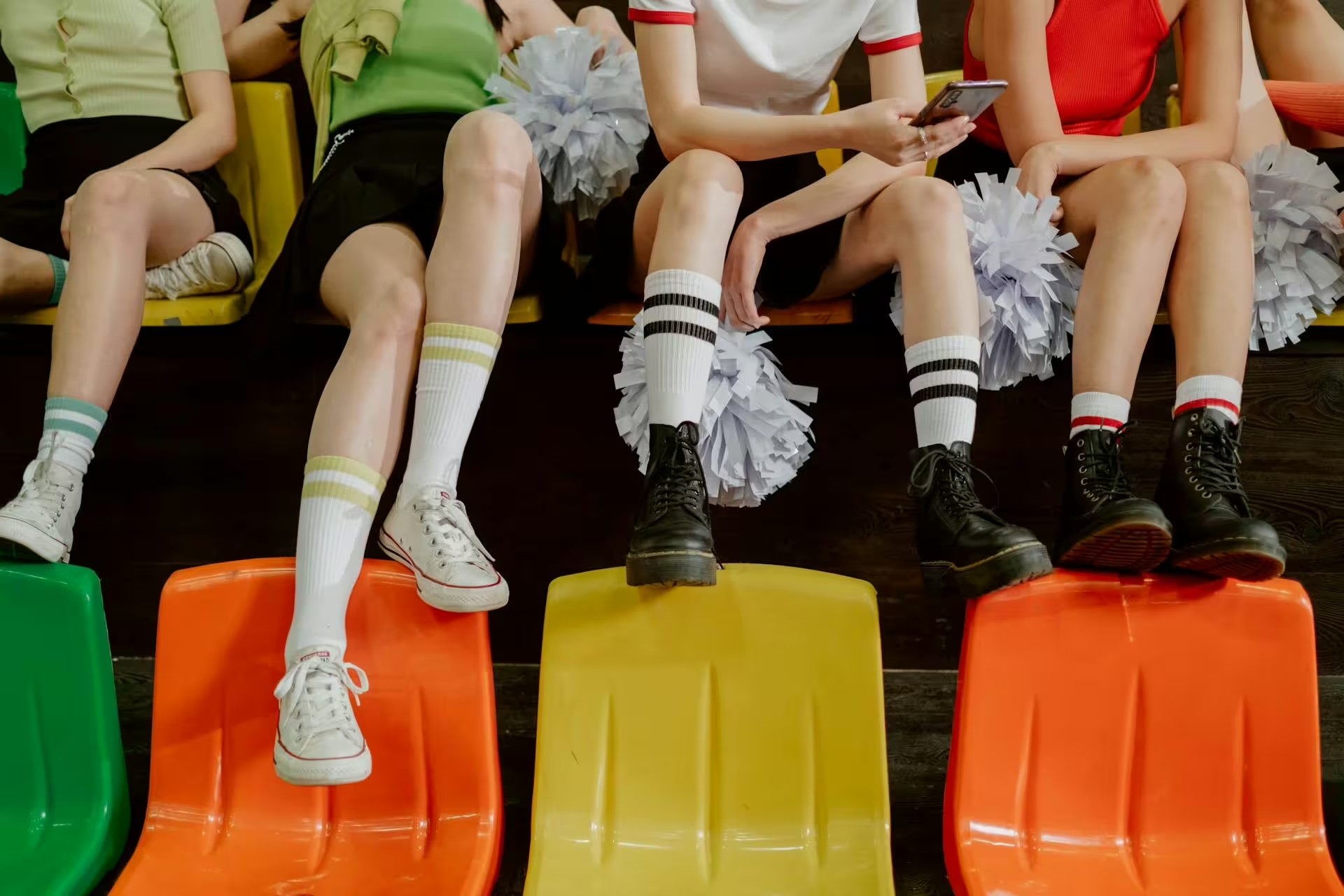With the fall sports season upon us, most parents are of a mind to take advantage of the last bits of pleasant weather and get their kids involved in traditional sports like soccer, football, or field hockey. We don’t blame them, of course. After all, many of the most popular fall sports coincide with the start of the school year, making them ideal for scheduling and keeping kids busy as the winter creeps slowly edges its way in. The problem is that many parents become myopic about which other sports are also available during the fall season—and in fact are actually free for children to participate in all year-round.
We are speaking here of gymnastics, dance, and as one might have inferred from the title of this article, of martial arts. This latter sport is one with centuries of tradition and a history of helping children find focus, confidence, and skill. Indeed, martial arts can be just as powerful in shaping young athletes and young people as any of the traditional sports that many parents use as go-to’s for getting their kids involved in youth sports.
In this article, we will discuss the many forms of martial arts that are available to kids and teens during and beyond the fall sports season. We will explore how they can benefit children who are at different stages of their development and why so many parents have begun to choose martial arts as a viable youth sports activity in recent years. At the same time, we will discuss some of the misconceptions about martial arts and allay parental concerns about their safety.
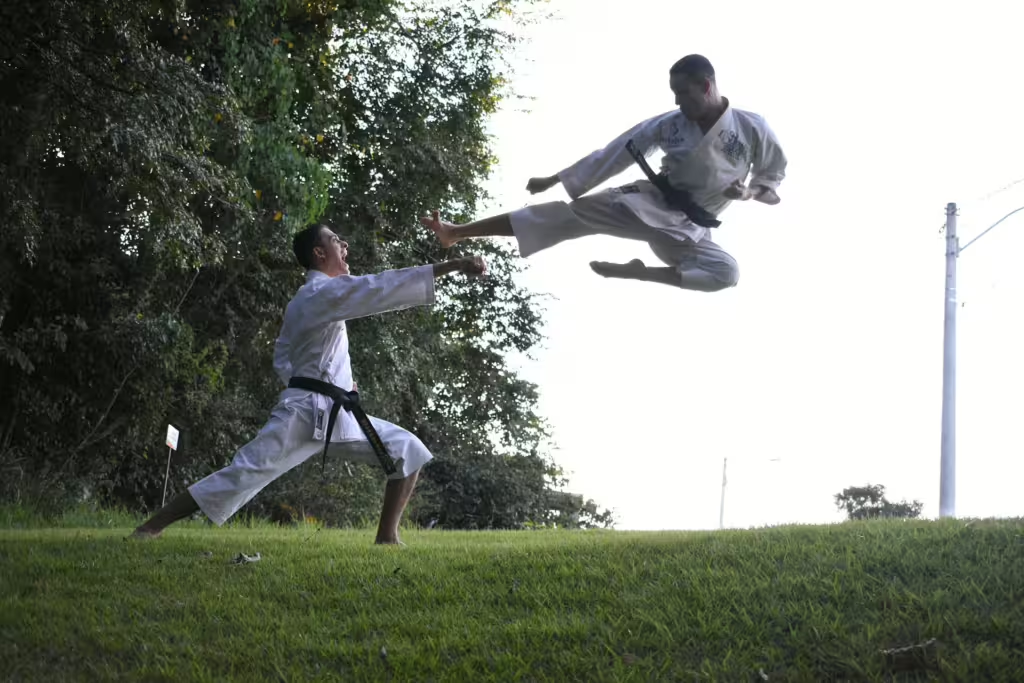
The Core Benefits of Martial Arts for Youth
Discipline and Respect
Perhaps the greatest positive attribute of martial arts is its emphasis on respect and discipline. As a parent of a child in martial arts, I can tell you firsthand how impactful those lessons have been on my child’s behavior. Eery martial arts class begins and ends with rituals of respect. These include things like bowing to the instructor, listening carefully, and following commands as they are given. Through this methodology—that is to say, through the guise of playing sports—children learn that discipline isn’t about punishment, it’s about structure, self-control, and earning achievements through their own hard work.
Confidence and Self-Esteem
Speaking of hard work, martial arts allows for tangible symbols of a child’s effort. The colored belts that a child earns through their martial arts career represent earned progress on the part of the athlete. These are simply “participation trophies” they are proof that hard work can pay off. As they learn the skills and rise in rank, they simultaneously gain confidence in both their physical abilities and their capacity to set goals and achieve them.
Focus and Attention
Look, as parents in the modern world, we are all well aware of the innumerable screens and distractions our children face on a daily basis. When we were kids, most of us only had to contend with TV or the odd video game. It wasn’t until many of us got into our teen years that cell phones and the Internet first became real concepts. Fortunately, we already know that youth sports is one of the main ways that we, as parents, can mitigate the rampant distractions and screentime that has captured our children’s attention; and martial arts are doubly-effective in this regard. This is due to the fact that martial arts require students to pay attention to the details, the small movements, the people around them, and the voice of the instructor. There is a control element to the sport and in some disciplines, one wrong move in a sequence means starting over. Through martial arts, kids learn to keep focus on the task at hand, rather than the next TikTok video they plan to scroll past. That same focus can also be carried into the classroom, aiding in their schoolwork.
Physical Fitness
Martial arts, like most youth sports, is a great way to improve a child’s strength, flexibility, endurance, and coordination. In addition, they are an excellent choice for kids who don’t connect with traditional team sports but who do need to find an outlet to get up, move, and exercise.
Self-Defense and Safety
While many parents are concerned that martial arts are more about violence than anything else, this wrong-headed misconception has been slowly going the way of the Dodo. Martial arts does not make a child more aggressive, it helps them to focus their innate aggression and excess energy into a more positive form of physical exercise. Nearly all martial arts disciplines emphasize self-defense, restraint, and the art of avoiding conflict whenever possible. So yes, your child will learn to fight, but they will also learn to do so only when they need to defend themselves or others. Through martial arts, kids gain the tools to protect themselves without becoming bullies.
Martial Arts for Younger Children (Ages 5–10)
Building Coordination and Motor Skills
For young kids that might still be figuring out the basics of balance and body control, martial arts offer structured movement that can be applied to more than simple punches and kicks. At this young age, students learn to practice rolling, jumping, and yes, kicking, as well as controlled strikes. All of these things are done in a safe way with qualified instructors who themselves have excellent body control honed from years of practicing martial arts.
Learning Structure Early
The youngest students learn structure from a tender age. Instructors teach them to line up, bow, and listen attentively. These rituals might seem elementary, but remember that younger children don’t innately understand the vagaries of boundaries and routines. As they pick these skills up, you may even start seeing this behavior being evinced at home and in school.
Addressing Shyness and Social Skills
Though it might not be a “team sport” per se, martial arts classes, like most organized sports, bring kids together in a supportive environment. In this way, shy children might become more comfortable about opening up around other children. The confidence they learn from these experiences might help them become more comfortable in other areas of their life, as well.
Energy Outlet
If your child is the kind who likes jumping off furniture when they are unable to get out their excess energy, martial arts might be a lifeline for your family as a whole. Children are naturally prone to bursts of energy that we adults have long since forgotten and martial arts provide a constructive outlet for them to utilize this in a constructive way.
Martial Arts for Middle Schoolers (Ages 11–13)
Confidence During a Tricky Phase
Middle school can be tough on kids, especially as they are only just coming into their bodies. Add to that an endless parade of shifting friendships, peer pressure, and challenges to their self-image and you’ve got a recipe for battered confidence. Martial arts may not be a perfect solution to these problems, but it does give preteens a sense of identity and pride in their own skill and progress. They may even find that their shaken confidence gets re-bolstered on the days at the dojo.
Anti-Bullying Benefits
Martial arts is big on both respect and avoiding conflict. Considering the raging hormones of themselves and their peers, preteens may need to learn how to defend themselves if necessary. But aside from violence as any kind of answer, martial arts might also afford them the necessary confidence to be able to handle confrontations in a calm, respectable manner.
Focus on Responsibility
At this age, teens are beginning to learn responsibility for their own life. Martial arts requires a fair amount of responsibility in terms of remembering routines, keeping their uniforms clean, and helping younger classmates as they themselves were once helped. These might seem like small responsibilities to some, but they might be just what they need to start preparing for bigger ones in the years to come.
Physical Strength and Conditioning
Martial arts help middle schoolers build added muscle, improve their agility, and increase their stamina, giving them an edge when they go on to play other sports.
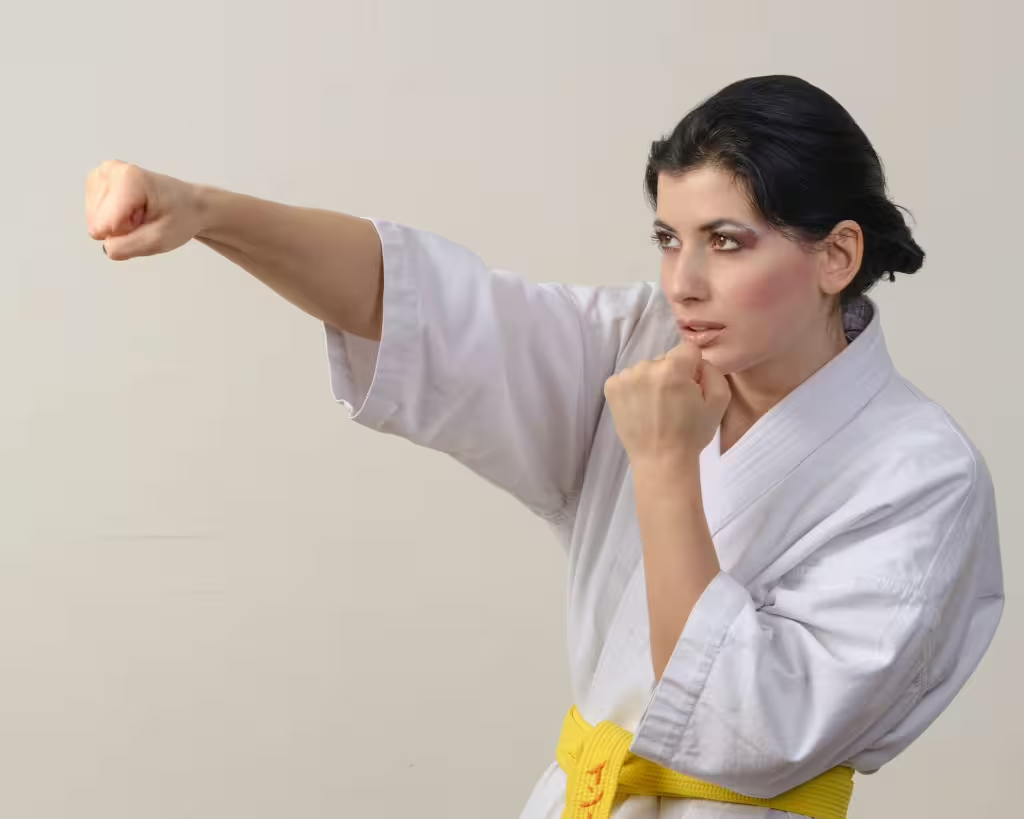
Martial Arts for High Schoolers (Ages 14–18)
Stress Relief
High school comes with even more social challenges and emotional ups and downs. It also features more academic pressures and it is often when teens start their first part-time jobs. Just as it helped them get out their excess energy as little children, martial arts is one of those sports that can offer them a healthy outlet for all that added stress.
Leadership Opportunities
Some dojos allow or even encourage older students to become assistant instructors or mentors for younger kids. This role teaches teens greater responsibility and communication skills.
Discipline for College Prep
High school athletes that spend their off-hours pursuing martial arts are often able to develop time management skills that their peers may not have had the chance to learn. Teens learn to balance training with academics, which can prepare them for the eventual independence of college life.
Fitness and Health
Martial arts provide full-body workouts for teens and if those teens are not drawn to football, basketball, or track, martial arts offer them a way to stay fit.
Addressing Parent Concerns
Will Martial Arts Make My Child Aggressive?
No. Martial arts will not turn your child into a “fighter.” Stress self-control, humility, and respect are the lessons that this sport teaches most fervently and most instructors make it clear that the skills they learn in class are there for ending fights, not starting them.
Is It Safe?
Like any sport, there are some risks involved in fighting with one’s peers. But the truth is, martial arts are no more dangerous than football or soccer. Moreover, the most reputable schools prioritize safety with padded floors, protective gear, and progressive skill-building.
What About Cost and Time?
Tuition varies from school to school and discipline to discipline, but many programs are comparable to travel sports teams. Most tend to be affordable at the very least. Also, most programs only meet 2-3 times a week and parents are allowed to choose their child’s level of commitment.
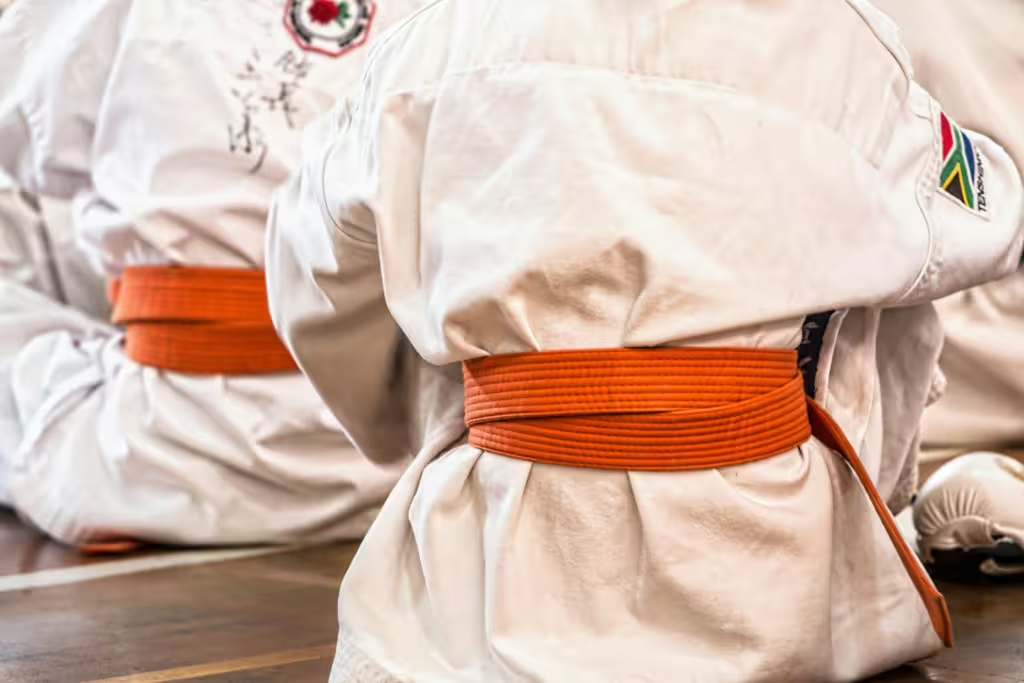
Cultured Athlete Says…
As you can see, martial arts are a perfectly reasonable answer for kids who want a sport but don’t want something that everyone else is playing. And no matter the modality your child chooses, they will find themselves a path towards better confidence, discipline, fitness, and personal growth. It doesn’t matter if your kid is a rambunctious kid, an awkward middle schooler, or a stressed-out high schooler prepping for college, martial arts might just be the perfect sport for them!
Discover more from CulturedAthlete
Subscribe to get the latest posts sent to your email.

